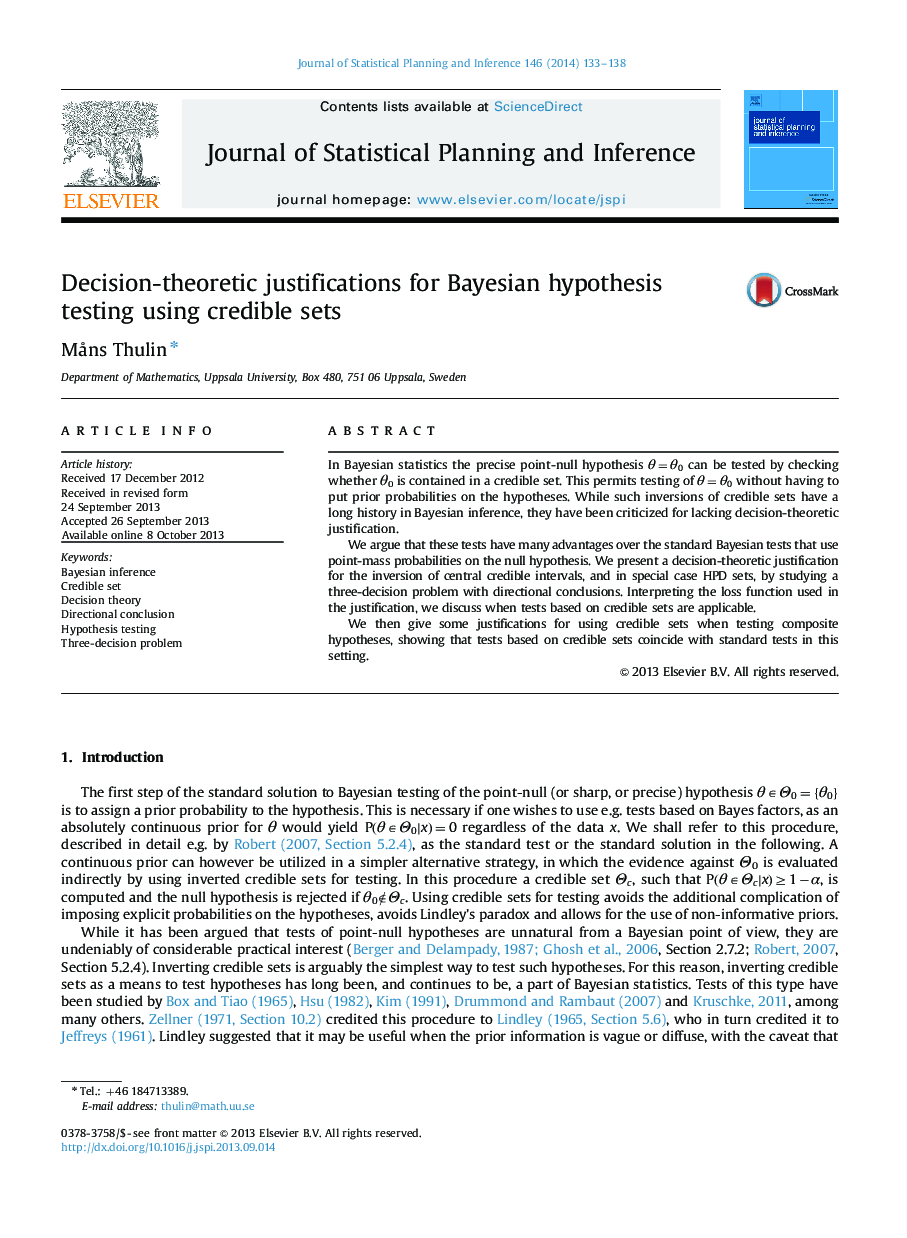| Article ID | Journal | Published Year | Pages | File Type |
|---|---|---|---|---|
| 1149152 | Journal of Statistical Planning and Inference | 2014 | 6 Pages |
•We discuss the merits of using Bayesian tests based on credible sets.•Such tests can be used with non-informative priors even in point-null testing.•We give decision-theoretic justifications for these tests.•Point-null tests of this type are closely related to directional conclusions.
In Bayesian statistics the precise point-null hypothesis θ=θ0θ=θ0 can be tested by checking whether θ0 is contained in a credible set. This permits testing of θ=θ0θ=θ0 without having to put prior probabilities on the hypotheses. While such inversions of credible sets have a long history in Bayesian inference, they have been criticized for lacking decision-theoretic justification.We argue that these tests have many advantages over the standard Bayesian tests that use point-mass probabilities on the null hypothesis. We present a decision-theoretic justification for the inversion of central credible intervals, and in special case HPD sets, by studying a three-decision problem with directional conclusions. Interpreting the loss function used in the justification, we discuss when tests based on credible sets are applicable.We then give some justifications for using credible sets when testing composite hypotheses, showing that tests based on credible sets coincide with standard tests in this setting.
